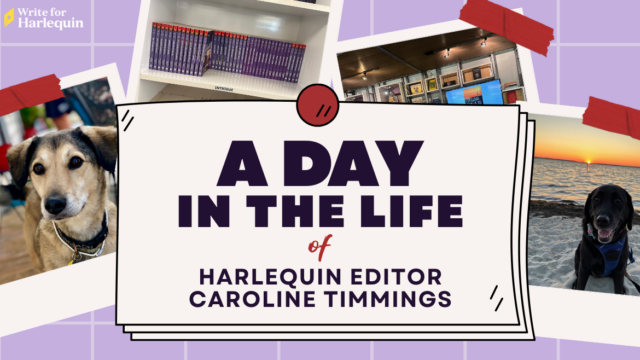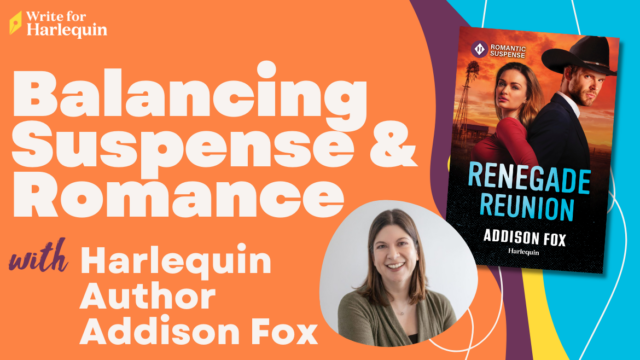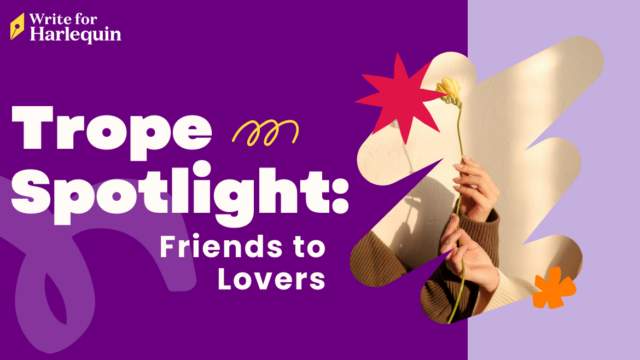During the SYTYCW conference, Senior Editor Linda Fildew (Harlequin Historicals), Editor Susan Litman (Special Edition) and Associate Editor Karen Reid (Harlequin Superromance) got together for a Q&A with authors about Conference Pitch Dos and Don’ts. The full transcript can be found on the Harlequin Community Forum, but here are some select points.
Q: What are some of your biggest pet peeves for in-person, conference pitches? I’m attending our chapter’s annual conference this weekend and pitching a couple of agents.
Karen: This might seem simple, but knowing who you’re pitching to, and what they might be looking for, goes a long way.
Linda Fildew: Be prepared and confident and enthusiastic about your storyline. Have some notes with you if this helps. Maybe practice with friends first to hear how the story comes across. Be concise but make sure to put all the story selling hooks in there.
Susan Litman: For me a rather big pet peeve is the author not being able to answer any questions I might ask about the story, i.e. “can you tell me more about the internal conflicts driving the characters” etc. You are the authority of your story, so you ought to be able to answer these questions. That info helps me determine whether your book is a good fit for my publishing program. And per Linda, practicing, and having friends ask you questions is a terrific way to prep. This will help you hone your pitch.
Q: Should there be an equal amount of information in the pitch about the hero as the heroine? What about secondary characters?
Linda Fildew: It’s good to know where the emotional tension will come from between your hero and heroine. I’d suggest not getting too involved with telling the secondary characters’ stories, just where they have good impact on what happens for the H/H.
Susan Litman: Yes, there should definitely be. We need to get a sense of your characters in order to get an overall sense of the story and how it fits into the targeted series or imprint. Secondary characters matter if they impact the main relationship, so use your judgment when prepping your pitch. Again, practice with friends – great tip from Linda Fildew!
Karen: Personally, I like to get a sense of the layers in both the hero and heroine, Fiona–helps me understand where they’re coming from and how they might be coming together. And as LInda pointed out, this is where the tension and conflict will come from.
Linda Fildew: Totally agree with Susan’s comment. Understand what is motivating your hero and heroine – look to give them emotional layers to create depth. Plot twists and turns are good, to keep readers guessing, but it’s the developing relationship between the H/H that will keep readers with the story.
Q: The present story I’m working on will be 3 books. Different h/h for each and a bad guy will be caught at the end of each. So do i pitch all 3 at the same time? or just the current one. Obviously not for the contest, as i only have 100 words, but for an in person pitch?
Linda Fildew: If you had created a Historical trilogy, we’d ask to see the synopsis/3 chapters of the first book and if we wanted to pursue that one then, of course, we’d be eager to see books 2 and 3.
Susan Litman: If you only have 100 words written overall, I’m not sure the project is ready to pitch, because if the editor makes a request they will want to see the project as soon as possible – and you want them to get it ASAP, while it is fresh in their mind. If you mean your pitch is only about 100 words but the project is complete (at least the first book) then you can develop it a bit further, pitch the first book and just mention that you have two connected books that you are working on. We’d probably ask to see the synopsis/first three chapters or complete for the first book, at the very least.
Q: when you write a 100 word pitch what things would grab an editors/ readers attention.
Karen: Working on Superromance, I would say you make sure to communicate in your 100 words the tension that lies between the hero and heroine and maybe the biggest conflict, the one thing that’s standing in the way of getting together! And if you have any hooks (i.e. cowboy, pregnancy, reunion) please include those  .
.
Linda Fildew: you’ll need to focus on what the main conflict is between your hero and heroine. Are there strong story hooks you can draw upon – e.g. battle-scarred loner hero (Beauty and the Beast), wallflower heroine (Cinderella/Ugly Duckling)? These classic themes still work brilliantly for today’s readers if you can give them a fresh spin.
There are a lot more wonderful tips for the SYTYCW conference and pitching in general on our Forums. Please be sure to check them out. You can also follow @Susan_Litman, @LindaFildew, and #HarlequinHistoricals, #HarlequinSuperromance and #HarlequinSpecEdition as well as our other links.




